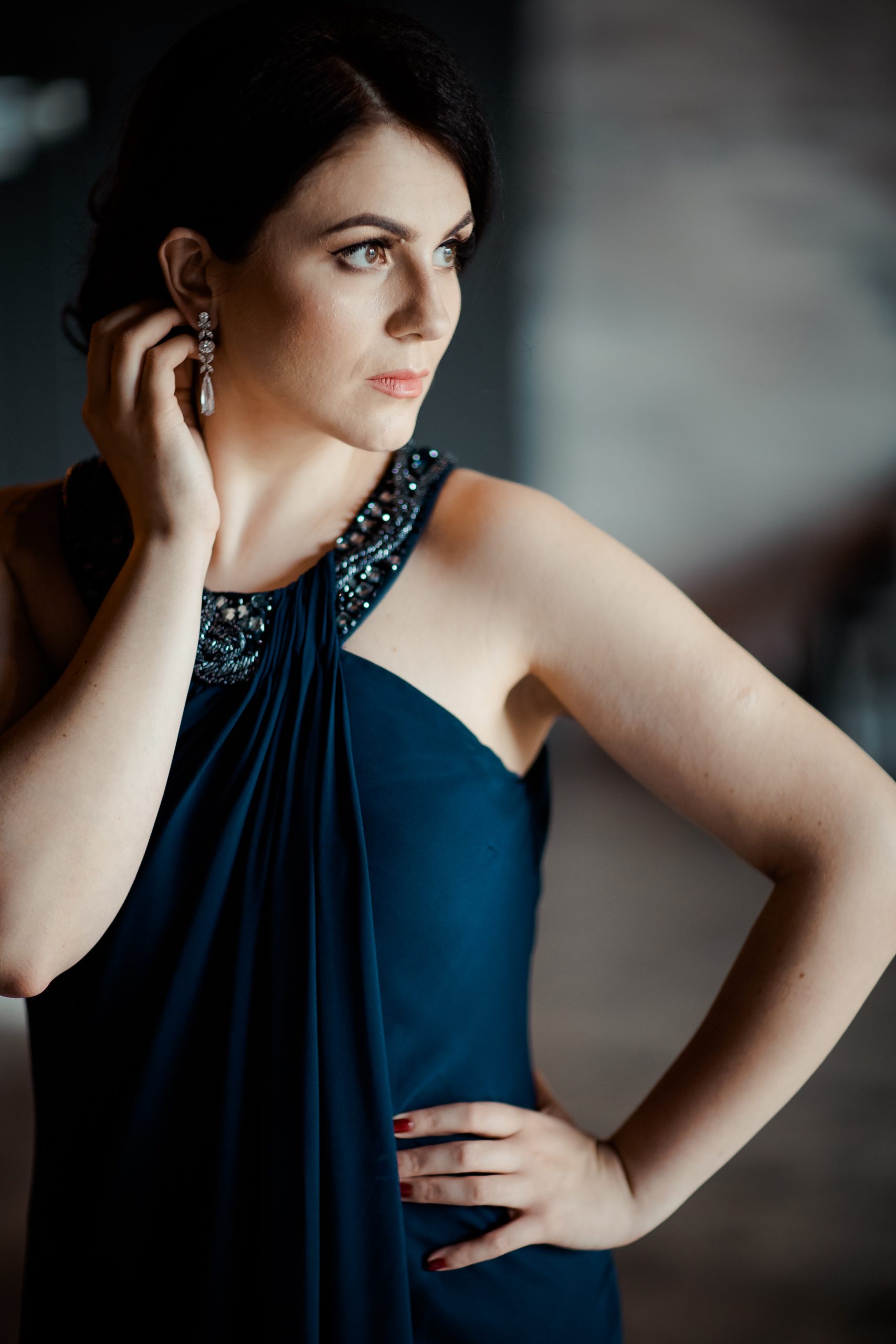
M
You’ve worked in Oslo, Prague, Zurich, even though you are originally from Moldova. What pulled you towards these destinations?
I come from my beloved little country Moldova and I am very lucky to be a traveling singer. I enjoy the opportunity to discover different countries, cities, and theaters. It challenges me to do my best wherever I work. I am lucky to be chosen to work in such different destinations like Oslo, Prague, and Zurich.
Most of the traditional opera repertoire is from ages ago – depicting stories of the aristocracy of Western Europe. How universal and relevant the traditional opera really is?
I believe opera is universal – for every listener, at any time. But, as a very complex genre, it asks for some effort from musicians and the audience. Opera in the highest way talks about all human needs and conditions. It is a long way to find the right key for the right door, but, when it works, the audience can tell. As a singer, you become one instrument, one body.
How did you like Salzburg?
Salzburg became very special to me. I enjoyed everything – the river, streets, and people. It is a great place for music lovers and art lovers in general. The festival is so well organized and administrated, the staff is friendly. No matter, if it’s a small concert or an opera production – quality and style are everywhere. To sing here is a joy.
There was a lot of uncertainty as to whether the Salzburg festival would take place this year. How do you feel about it?
We all were expecting another cancellation, really. Therefore the first orchestra rehearsal in Salzburg felt like a dream. What a stage and orchestra it was! I had goosebumps, listening to this tremendous music.
You mentioned that today your dream roles are Tatiana and Mimi, whereas in the future you hope to sing the roles of Madama Butterfly and Floria Tosca. What pulls you towards such repertoire?
This repertoire is what I hope will be good for me in some years, when I’ll be able to give my personal color to these characters, to their stories, to their music. Both Mimi and Tatiana are very close to my heart and fits my voice. We will see what the future brings.
How could you describe your relationship with the music of Richard Strauss and what does it mean to you to be a part of the staging of his opera Elektra?
Strauss is a genius. You have to grow to understand his music. Every time you listen to it, you get closer. He uses the human voice as an instrument that is the most difficult to play. So to be part of Elektra is challenging, but satisfying. My role is short, but has beautiful lines and shows the spectrum of my voice.
Do you have much creative power while rehearsing with different music directors and conductors?
Even though the main concept is coming from the director, we can always ask, suggest, and exchange ideas. Musically as well – you follow the directions of the conductor, but always telling what you need, what feels right to you.
Do you have a favorite performance of Elektra that referred to?
Of course, while studying and preparing a role, I always listen to other singers, to hear, to compare, to understand. My favorite Elektra is also from Salzburg Festival’s 2010 production with Irene Theorin in the title role.
Are you hard on yourself and your performances?
I understand that it always can be better. For me, it is important to not make mistakes and I am happy with my flaws. I am critical as it helps me to grow, but definitely not overcritical.
Do you admire any non-academic singers? What can an opera singer learn from popular music singers?
Yes, I admire Sting. His music and way of delivering it to the audience have an intimacy which I believe we all need. Singers can always learn from each other, as long as we bring quality and professionalism.
What meaning do you put on this year’s performance at the Salzburg Festival?
Well, it is a special year, but also in special times. Performing at this year’s Salzburg Festival was a huge honor and opportunity. I feel brave and somehow proud to be a part of it.
Are there any personal future projects that excite you?
Yes, my debut as Tatiana in Evgenij Onegin makes me feel very happy, besides all the other roles which I hope to take as a part of my artistic life experience.
Thank you for the conversation!
